- Bernard Preston homepage
- Our green garden
- A Time to Sow
A time to sow
A time to sow is a season of joy; mealies, peppadew seedlings and kale must be planted as soon as the soil warms up properly in spring. In late summer it's the turn of spinach, broad-beans and peas.
Potatoes can be planted in both spring and autumn but where they can find some protection against frost in winter; for example along a line of dry climbing-bean stalks.
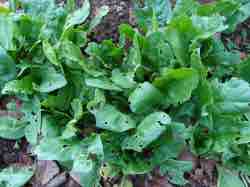
Spring is a very busy time in our green garden. The early rains have arrived, the reservoir is full and we have again escaped from using municipal water for yet another year. The price in July rose an astonishing 50%; it's killed growing food in the dry season for many and will further contribute to hunger and stunting.
The solar panels are pumping. It's nine months since we have needed any Eskom power.
The word bandied about is “resilient" as we prepare for yet more shortages and shocking rises in the price of both electricity and water; and food.
One of those big changes is food availability; prices are soaring and likely will continue to do so. In a perverse way, I actually welcome that; it means we will all get a kick in the pants to start growing more of our own fruit and vegetables, free from chemical biocides.
Less than 20% of South Africans grow any of their nosh at all; that needs to change. Hunger lurks and starvation is on the horizon for many.
That may mean some tatty spinach-leaves where the locusts and snails have taken their share; and more time hoeing out the weeds. Being with nature is good exercise and even reshapes the brain for the better.
"What if a walk in a green environment could reshape brains, recalibrate sense of time and stave off mental health conditions? If the research trends are true, doctors might soon find themselves writing prescriptions of 20 minutes of nature per day."
- Dr William Bird, MD, MBE
Mulching
We’ve been trying something new; spreading the autumn leaves directly on the ground between the plants instead of piling them on the compost heaps. Large sheets of cardboard are helpful too.
The big plus is less weeding and watering because of the mulching, but obviously the compost piles are suffering; a tradeoff that we are still evaluating. Moving barrow-loads of humus[3] from the heaps to the beds is one of my pet hates; it’s very hard work.
Permanent raised garden beds have proved one solution; a compost heap that doesn't need to be opened for ten years.
The good wife has been busy planting in her trays and most of the veggie garden now has potatoes and mealies poking their heads through the earth; lots of peas, kale and other greens too. Tomorrow rain is expected so this morning we will set out the peppadew seedlings[2].
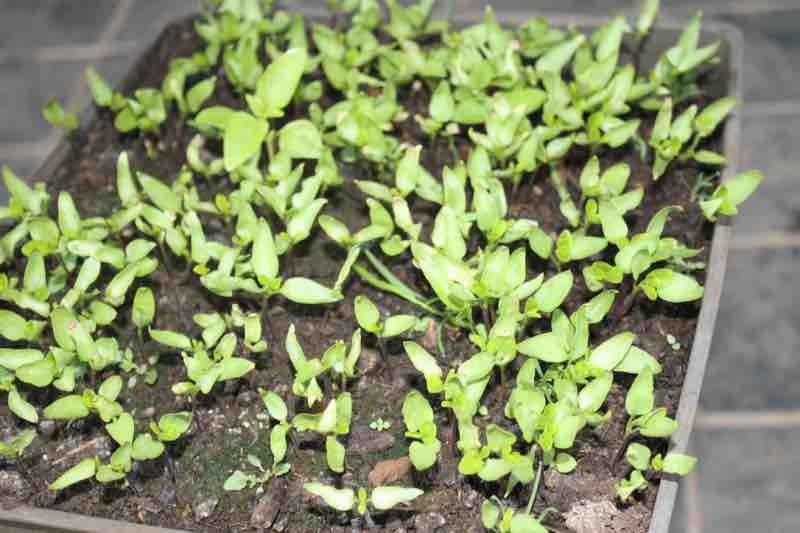
To keep up the enthusiasm I like to try something new each year. Last spring that was okra, but the hens took a real fancy to the seedlings; not one survived. So it’s the same again for us, with the birds banished until the plants are well-established; and sunflowers and lucerne for the first time for those chickens.
There is strong research that those eating seven or more coloured foods every day, even in small quantities so a sprig of parsley would count, have a thirty percent lower all-cause of death; that’s massive.
So I figure we are faced with a choice; spending time growing and enjoying our own organic vegetables and fruit, or even more days and weeks consulting doctors and the pharmacist. You know where our sentiments lie.
A new study from the Yale School of Medicine reveals that a third of new drugs approved had to be withdrawn because of "major safety issues" years after they were made widely available to us[5].
Is a life without medication just a pipe-dream? In the main not for those who firmly believe that prevention is better than a cure; and are prepared to make a time to sow. In our mid seventies neither of us take any drugs.
Interestingly the longevity diet emphasises plenty of unrefined starches; legumes like beans and peas too.
That is why the broad bean season is so important. The dopamine content protects us from the neurodegenerative diseases; it's not fun getting old for many folk. In general we prefer green legumes; they have less anti-nutrients too.
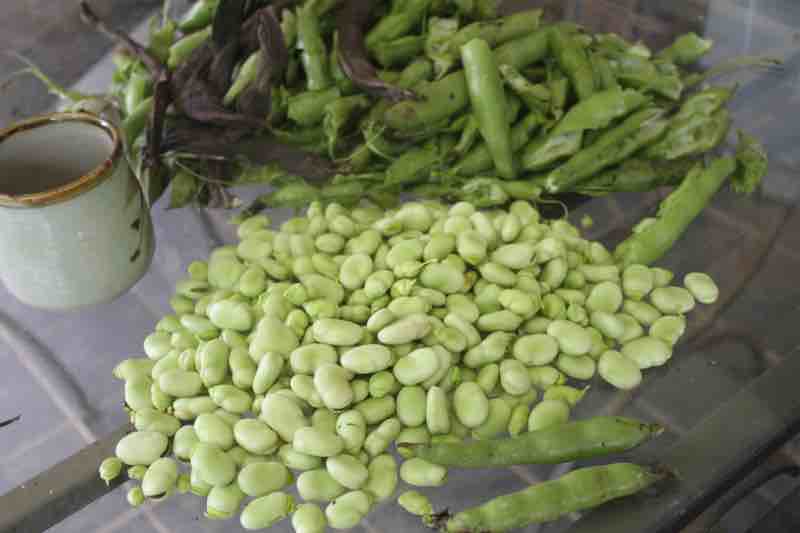 Broad beans grow best in the cooler months
Broad beans grow best in the cooler monthsWebMD advocates that we should “treat food like medicine, recognising that everything we put in our mouths will have an effect on the body.” So will it be a potato chip with toxic chemicals like acrylamide or a new spud just harvested from the garden?
For example there is now strong research that type-2 diabetics, using food as medicine can put their disease completely into remission without the use of drugs.
One lesser known fact is that new potatoes just harvested from the garden have a significantly lower GI than those from cold-storage; even diabetics can often eat them. Plus most commercial spuds are sprayed with a nasty herbicide called Paraquat before they are lifted; it's banned in much of the world.
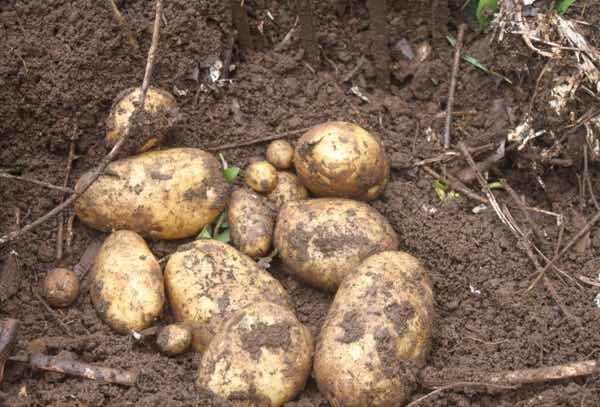 New potatoes have a low GI
New potatoes have a low GIThe first mealies are up and we will be planting two new rows every month; we want some for the hens too. They also go crazy over corn on the cob, the same as we do.
First put the pot on to boil; only then go and pick and shuck your mealie. The flavour and nutrition are divine and especially good for the eyes. It’s all about two phytochemicals called zeaxanthin and lutein that help prevent macular-degeneration.
It's a time to sow.
There’s a huge dilemma with carbs grown in your garden. Many of the fad diets will not allow more than 20g of starch per day. But on the other hand, there is strong research that new potatoes and "whole grains” are very good for us; only you are unlikely to find them in the grocery store.
Diabetics should test themselves but for most of us new spuds and fresh mealies from our own gardens are a delight. Just don’t make a pig of yourself; keep the load down.
Allowing starches to cool overnight in the fridge and reheating them the next day allows the molecules to “retrograde;” making it more difficult for the enzymes in the small intestine to digest the carbohydrate[4]. Much then reaches the colon where there is a feeding-frenzy by the microbiota.
These chilled starches become less fattening and provoke only a small blood-glucose spike unless one is insulin resistant.
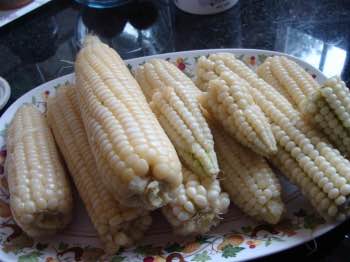
The obese should strictly limit even the good starches until they have
got those unwanted pounds off. But mostly it’s the refined carbs that are
killing us; that is why we have acquired a corn flour milling machine so we can enjoy whole grains. You are unlikely to find 100% maizemeal in the shops.
Understanding how net carbs work is the way to successfully wage war on unwanted fat around the belly, buttocks and thighs.
Actually
the place to start is by strictly limiting sugar; do you know South
African adolescents are having nearly two cups a day?[1] Within a couple decades they will find out all about the Twenty Year Diabetes Rule.
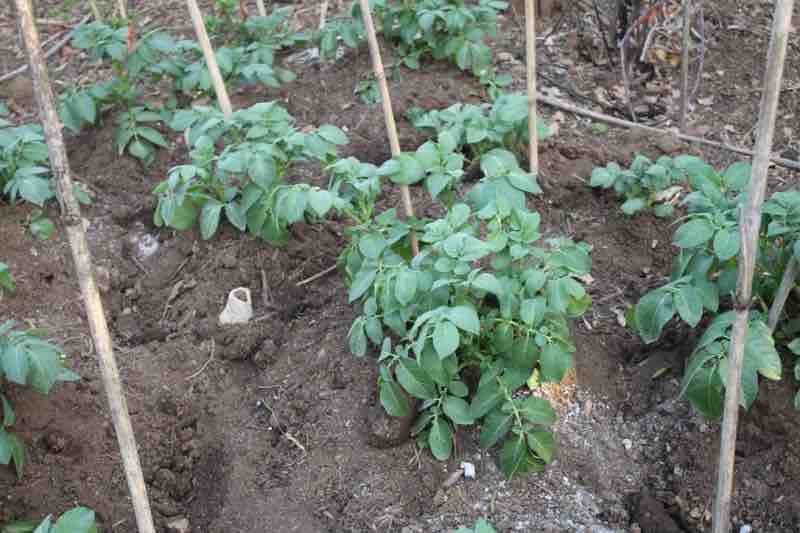
It’s the 28th September as I write and my friend Piet the Cuckoo still has not arrived back from his summer holiday in Central Africa. I wonder what is delaying him. I love his call when I am working in the garden and even in the middle of the night. The Diederik is everywhere though; they parasitise the weavers.
Personalised ecology
Professor Kevin Gaston writes persuasively of how each of us creates what he calls a "personalised ecology;" a unique set of direct sensory interactions with nature.
At Our Green Home it's a beautiful life; in a suburban garden we interact with nature on a daily basis. It has not just happened; we have made choices.
"Two roads diverged in a wood and I took the one less traveled by; and that has made all the difference."
- Robert Frost
Each day is different; right now I am bring in truck loads of mulch to heap up the potatoes.
Yesterday I spoke with a distinguished plant scientist about the serious blight that has afflicted our broad beans. He pointed out that one bush is unaffected; and spoke of the beauty and power of selective breeding. I will keep its seeds for next year.
"The less nature there is, the less we care about it; and the less we are likely to do about it."
- Professor Kevin Gaston
A time to sow
It is a time to sow in spring for a wonderful harvest later in the summer; then it is autumn's turn for many greens, broad beans and peas.
- Evidence to support a food-based dietary guideline on sugar consumption in South Africa
- Growing peppadews
- Define humus
- Reheating resistant starch
- One-Third Of New Drugs Had Safety Problems After FDA Approval
- Personalised ecology
When browsing use right click and "Open Link in New Tab" or you may get a bad gateway signal.
Newsletter
Our newsletter is entitled "create a cyan zone" at your home, preserving both yourself and Mother Earth for future generations; and the family too, of course. We promise not to spam you with daily emails promoting various products. You may get an occasional nudge to buy one of my books.
Here are the back issues.
- Lifestyle and ideal body weight
- What are ultra-processed foods?
- Investing in long-term health
- Diseases from plastic exposure
- Intensive lifestyle management for obesity has limited value
- A world largely devoid of Parkinson's Disease
- The impact of friendly bacteria in the tum on the prevention of cancer
- There's a hole in the bucket
- Everyone is talking about weight loss drugs
- Pull the sweet tooth
- If you suffer from heartburn plant a susu
- Refined maize meal and stunting
- Should agriculture and industry get priority for water and electricity?
- Nature is calling
- Mill your own flour
- Bake your own sourdough bread
- Microplastics from our water
- Alternative types of water storage
- Wear your clothes out
- Comfort foods
- Create a bee-friendly environment
- Go to bed slightly hungry
- Keep bees
- Blue zone folk are religious
- Reduce plastic waste
- Family is important
- What can go in compost?
- Grow broad beans for longevity
- Harvest and store sunshine
- Blue zone exercise
- Harvest and store your rainwater
- Create a cyan zone at your home
Did you find this page interesting? How about forwarding it to a friendly book or food junkie? Better still, a social media tick would help.
- Bernard Preston homepage
- Our green garden
- A Time to Sow
Address:
56 Groenekloof Rd,
Hilton, KZN
South Africa
Website:
https://www.bernard-preston.com